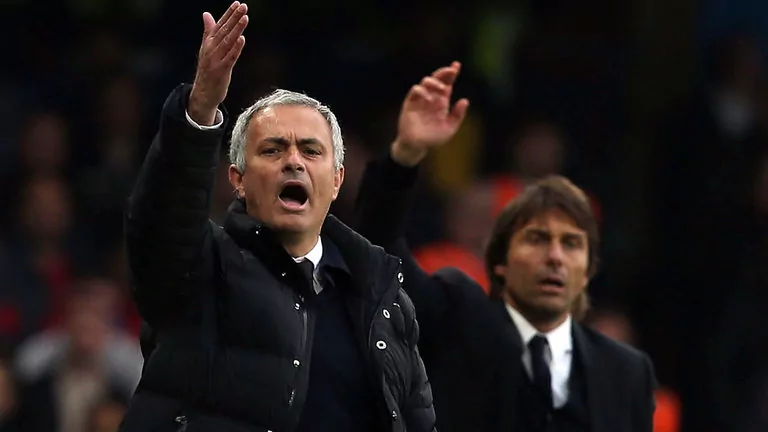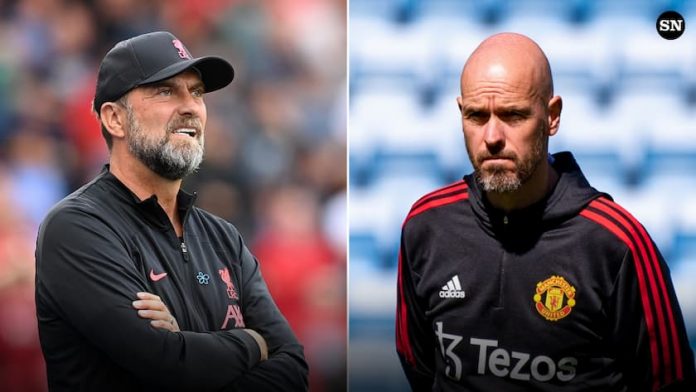Many people argue that the FA Cup has lost some of its appeal in recent years, but both Manchester United and Chelsea will beg to differ when they go head-to-head at Wembley on May 19.
This year’s final offers both sides their last chance of winning silverware this season and they are certain to be going all out to lift the famous trophy.
The competition lags behind the Premier League and Champions League in the financial stakes, yet a quick look at the recent winners of the FA Cup highlights how much it still matters to the top clubs.
Over the last 20 years only Wigan Athletic and Portsmouth from outside the so-called ‘Big Six’ clubs have won the FA Cup.
Arsenal’s success last season was celebrated wildly by the fans who revelled in the fact that their side had stopped London rivals Chelsea from winning the double.
However, the triumph was worth just £4.3 million to the Gunners and this year’s winners will pocket a similar amount.
When you consider that Liverpool will receive around £150 million for finishing fourth in the Premier League and £73 million if they can win the Champions League, it’s fair to say that the FA Cup isn’t a major money-spinner for the top clubs.
How do clubs earn money from the FA Cup?
A club that enters in the third round and goes on to win the competition will make £3.4 million, with victory in the final accounting for £1.8m of that total.
Runners-up take home £900,000 while defeated semi-finalists receive £450,000 for their efforts. Winning a third round tie is worth just £67,500, significantly less than many of the game’s top stars earn in a week.
Clubs also receive income when they play home or away in a televised tie, with the FA paying them a live broadcast fee of £144,000. Replays are worth £72,000 per club.
Arsenal were featured on TV six times last season in the FA Cup, earning them £864,000 in broadcast fees.
Gate receipts in the competition are split equally between the two clubs involved in a tie, meaning lower league clubs can enjoy a financial windfall if they are drawn away to a Premier League giant.
Where does the money come from?
Since the start of the 1994/95 season, the FA Cup has been sponsored. However, to protect the identity of the competition, the title has always included ‘The FA Cup’ in addition to the sponsor’s name, unlike sponsorship deals for the League Cup where the word ‘cup’ is preceded by only the sponsor’s name.
Emirates Airline is the sponsor until 2021, renaming the competition as ‘The Emirates FA Cup’, unlike previous editions, which included ‘The FA Cup in association with E.ON’ and ‘The FA Cup with Budweiser’.
The value of the new deal or the first three-year agreement with the Dubai airline were not disclosed, although the deal signed in 2015 was reported to be worth about £10 million per year.
Broadcast deals, which include the BBC and BT Sport, and sponsorship were worth £208.2m to the FA in 2016/17. These figures include both the FA Cup and England games.
How does the FA Cup compare to other competitions?
Income from the Premier League, Champions League and Europa League dwarfs what clubs can earn from the FA Cup.
Manchester City raked in over £153m from their successful Premier League campaign in 2017/18, while Liverpool have already earned £58m during their run to this season’s Champions League final.
Even United’s Europa League triumph in 2016/17 was significantly more lucrative than success in the FA Cup, with the Red Devils earning around £40m from the competition last season.
However, the FA Cup may be able to gain some financial ground on other tournaments next season after the FA negotiated a lucrative £820m international TV rights deal with Pitch International and IMG.
So why does the FA Cup still matter?
The FA Cup attracts a global audience of over half a billion in more than 100 countries and territories around the world. The magnitude of the event means it is highly coveted by sponsors that want to tap into its massive global reach.
According to a study by market analysts GumGum, the 2017 final generated over $21 million in total media value from nine major sponsors analysed across broadcast and social media.
That sort of figure highlights that the FA Cup remains hugely appealing to sponsors, but the attractiveness of the competition also transcends financial considerations.
The runaway success of the Premier League and Champions League has created plenty of debate around the FA Cup and whether it remains relevant, yet the competition still retains its spark.
Wigan’s 1-0 victory over Man City in this year’s fifth round was a major shock, particularly when you consider the resources of the two clubs.
City have, according to research group CIES Football Observatory, the most expensive squad in football and fielded a team against the Latics that was valued at about £349m. Wigan’s starting XI featured eight players signed on free transfers, but they still won the game.
Results like that add to the appeal of the competition and the annoyance shown by City boss Pep Guardiola both during and after the game showed just how important the competition is to his club.
A £4.3m windfall for winning the FA Cup is a drop in the ocean to the likes of United and Chelsea, but the global appeal of the competition and its continued importance to sponsors will ensure that both sides will do their utmost to emerge victorious this weekend.
Add Sportslens to your Google News Feed!







